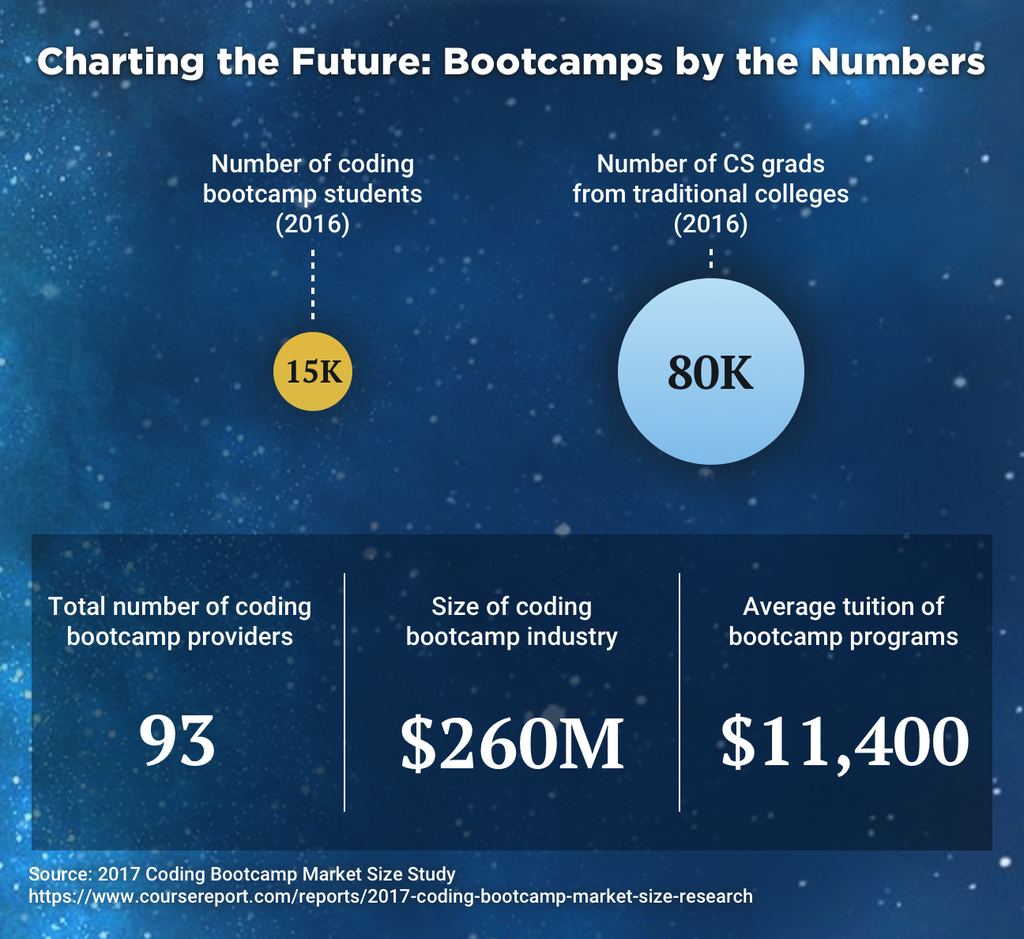The past five years saw a burst of so-called coding bootcamps, for-profit companies running intensive 9- to 12-week courses designed to strip away the theory taught in college computer-science programs and teach students just enough to get their first job as a programmer.
Part of the message was that for many high-paying tech jobs these days, people don’t always have to turn to higher education when they need new knowledge or skills. As Shereef Bishay, the founder of Dev Bootcamp, one of the earliest coding bootcamps, put it on Bloomberg TV three years ago, “We seem to be hypnotized by the myth that college and higher education are exactly the same thing,” adding that “there are all kinds of things we can do to get people educated and into the workplace that don’t depend on a four-year or a two-year degree.”
In other words, Silicon Valley entrepreneurs believed they could do in-person education for what they saw as a gap between what students wanted and what colleges provide.
But this summer, Dev Bootcamp, that pioneering bootcamp that kicked off a trend, announced it would soon close because it couldn’t find a sustainable business model. And days later another early bootcamp company, The Iron Yard, also decided to close its doors. That has raised questions about the viability of the model, the state of the remaining players, and what traditional higher education can learn from both the successes and failures of these upstarts.
EdSurge set out to answer some of those questions with a series of articles about the future of coding bootcamps. We’ll be adding to the series over the next few weeks, and let us know if you have particular questions you want us to pursue.
— Jeff Young, senior editor at EdSurge



